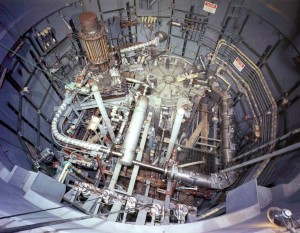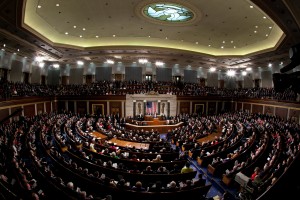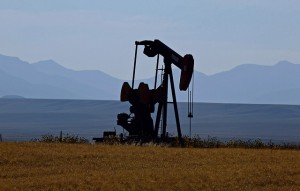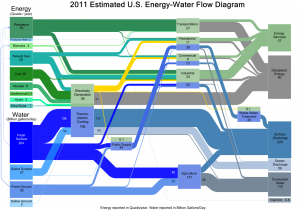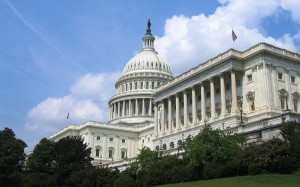587 item(s) were returned.
President
Kadak Associates, Inc.
Today there are 100 nuclear plants operating in the United States, providing roughly 17% of our electricity. They do so with water technology developed in the 1960’s and 1970’s and many of these plants are extending their licenses from 40 to 60 years after careful regulatory review. Even new design nuclear plants such as Westinghouse’s AP-1000 and General Electric’s ESBWR are fundamentally the same technology, which are described as evolutionary. Yet today there are many new innovative designs and technologies that are being developed that are not water based. These innovators face enormous challenges in coming up with new designs… [more]
View InsightThe Federal-Aid Highway Act of 1956, along with the Highway Revenue Act (1956) created the Highway Trust Fund (HTF) as a mechanism through which federal gasoline taxes would be used to fund the construction and maintenance of the U.S. highway system. Both the taxes themselves and the authority to place these funds into the HTF expire and must be extended periodically. In 1993, the last increase brought the federal gas tax to 18.4 cents per gallon, 24.4 cents per gallon for diesel. Many point to inflation and increased fuel efficiency as causes of significant shortfalls in the HTF and claim… [more]
View InsightPrincipal
Perelman Group
Jesse Jenkins (MIT) and Matthew Stepp (Center for Clean Energy Innovation) are among a number of policy analysts who have called for a “tax and invest” strategy to combat global warming. That is: A modest tax on carbon emissions would be invested in government research, development, and innovation-promotion programs to commercialize new alternative energy technology. But in a recent article I have argued there are at least four reasons to question whether typical government technology programs would be as cost-effective an investment as Jenkins and others claim: 1. The government role in innovation is neither necessary nor sufficient. Of the… [more]
View InsightOn Tuesday, January 20th 2015, President Obama will deliver the State of the Union address (SOTU), and energy and climate will likely play a prominent role. In last years’ SOTU, President Obama outlined an all of the above strategy: increasing domestic oil and gas production, cutting red tape, phasing out fossil fuel subsidies and addressing climate change. However, a lot has changed in the last year. Republicans now control both chambers of Congress, oil prices are at their lowest point since 2009 and the Clean Power Plan has impacted the policy landscape both domestically and abroad. The administration just announced… [more]
View InsightOil prices have declined sharply over the last six months, with the U.S. benchmark closing below $50/barrel on Jan. 6th, for the first time since 2009. A number of factors have contributed to this fall in prices, including an increase in U.S. tight oil production and decreased global demand. Beyond the immediate financial benefits of lower fuel prices for U.S. consumers, the falling price of oil raises several policy questions. Impacts on financial markets and geopolitical tensions that could be exacerbated if the low price persists are only a few of the potential issues U.S. policymakers may find themselves dealing… [more]
View InsightThe Environmental and Energy Study Institute (EESI) is an independent, non-profit organization advancing innovative policy solutions to set us on a cleaner, more secure and sustainable energy path. EESI educates policymakers, builds coalitions and develops policy in support of energy efficiency, renewable energy, sustainable biomass, sustainable buildings, and sustainable transportation. EESI was founded by a bipartisan Congressional caucus in 1984, and its strong relationship with Congress helps EESI serve as a trusted source of credible, non-partisan information on energy and environmental issues. EESI receives no congressional funding and is supported through contributions and grants.
View InsightOn December 22, 2008, a disposal cell at the TVA Kingston Fossil Plant ruptured, releasing an estimated 5.4 million cubic yards of fly ash in eastern Tennessee. Fly ash is one of a variety of coal combustion residuals (CCR), collectively referred to as coal ash and stored in more than 500 disposal facilities across the country. The Kingston spill prompted an EPA effort to reassess how coal ash is regulated. In the initial rule proposal, two different options for regulating coal ash were included, under the Resource Conservation and Recovery Act (RCRA), which regulates solid waste. The central question was… [more]
View InsightDirector of Energy Systems Analysis and Integration
Department of Energy
This prompt is the second in a series of discussions led by invited speakers at the upcoming 15th National Conference and Global Forum on Science, Policy and the Environment: Energy and Climate Change to be held January 27-29, 2015 in Washington, DC. Energy and water systems have historically been designed and managed independently. However, the systems are, in fact, interdependent. In its simplest form, the energy-water nexus can be broken into two parts: “energy for water” —the energy required to treat, transport, or heat water—and “water for energy” —the water required for cooling thermoelectric power plants, oil and gas production,… [more]
View InsightOn December 3rd, 2014, OurEnergyPolicy.org hosted “Abundance or Scarcity? Re-examining U.S. Oil & Gas Policy,” a panel event at the Capitol Visitor Center in Washington, DC. The panel discussed how recent growth in domestic oil and gas production is transforming the U.S. energy sector and challenging the paradigm of energy scarcity that has underpinned federal policy for the last 40 years. Topics covered include policy issues related to exports, finance, climate change, infrastructure, natural gas as a transportation fuel and politically viable energy legislation. Find the full video below and the transcript here. Introduction: Bill Squadron, President, OurEnergyPolicy.org Opening remarks:… [more]
View InsightClarence Efroymson Professor of Economics
Butler University
As I explain in U.S. Energy Policy and the Pursuit of Failure, bipartisan compromise is possible and has led to policy change in the past. However, that change has almost always been bad for the country. Bipartisanship has given us ill-conceived and wasteful programs for synthetic fuels, breeder reactors, “super cars,” windmills, and ethanol. The problem runs much deeper than the current President or the balance of parties in Congress. For the past forty years, U.S. energy policy has been premised on false concepts of markets, government, technology, and history. The basis for this policy paradigm goes something like this: The… [more]
View Insight